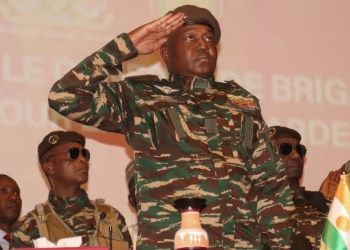President William Ruto’s administration has launched a robust response to a scathing critique by Catholic bishops, as the government intensifies its new communication strategy. Several key government officials and institutions issued statements to refute the bishops’ accusations of corruption, human rights abuses, and unfulfilled promises, with a particular focus on addressing concerns raised about the government’s handling of public issues.
Sources within the government suggest that such criticisms may have contributed to the protests led by Gen Z in June and July, which were sparked by the failed Finance Bill 2024. At the time, Ruto admitted that his communication team had mishandled the situation.
On Thursday, a coordinated effort by government figures—Senate Majority Leader Aaron Cheruiyot, Inspector General of Police Douglas Kanja, Health Cabinet Secretary Deborah Barasa, and Education Cabinet Secretary Julius Ogamba—sought to challenge the bishops’ allegations, presenting counterarguments on various fronts.
The next day, President Ruto weighed in on the matter, subtly accusing the bishops of spreading misinformation. He urged Kenyans to work together for a unified nation, stressing the importance of factual information in public discourse.
The bishops, under the Kenya Conference of Catholic Bishops, had accused the government of heavy-handedness, lying to the public, and perpetuating human rights abuses, including extrajudicial killings and abductions. They also criticized the government’s handling of the Social Health Authority, alleging that it had failed to address problems in both public and church-run hospitals. In response, government officials labeled these claims as “misleading and false.”
The Education and Health ministries provided detailed updates on their progress in addressing public concerns. It is understood that the government is particularly sensitive to these kinds of sentiments, as they may fuel further unrest, especially following the Gen Z protests. Political analysts argue that the state cannot afford to ignore such criticisms, as the church holds significant sway in Kenya’s political landscape.
Political commentator Javas Bigambo noted that the church’s influence is considerable, and any political statements made by religious leaders could have far-reaching implications. He cautioned the clergy against playing into political narratives, referencing the role of religious leaders in the lead-up to the 2007 elections.
Government operatives appear to be fully engaged in countering what they see as false information, with several statements and social media posts aimed at setting the record straight.
On Friday, Government Spokesperson Isaac Mwaura responded point-by-point to the bishops’ concerns, reaffirming the administration’s commitment to transparency and accountability. Mwaura addressed issues such as corruption, human rights, taxation, healthcare, and youth unemployment, explaining the government’s efforts to resolve outstanding challenges. He also clarified the administration’s position on term limits, stating there were no plans to extend the president’s tenure as suggested by the bishops.
Mwaura emphasized that the government had allocated over Sh5 billion to health facilities, including those run by the Catholic Church, and pledged to clear pending NHIF bills. Regarding job creation, Mwaura highlighted the employment of over 105,000 Kenyans in international jobs and the creation of additional job opportunities through affordable housing and online platforms.
On the issue of the reconstitution of the Independent Electoral and Boundaries Commission (IEBC), Mwaura reiterated that the government had no intention of delaying the process, blaming the hold-up on political disagreements.
Other government figures also addressed specific criticisms. CS Deborah Barasa pointed out the government’s financial support for health facilities, including over Sh900 million to Catholic-run hospitals. Senate Majority Leader Aaron Cheruiyot accused the bishops of spreading misinformation, urging them not to be manipulated by political opponents of the government.
CS Julius Ogamba defended the Competency-Based Curriculum (CBC) and the new university funding model, stating that significant investments, such as the construction of 16,000 classrooms for Grade 9 students, were underway.
Finally, IGP Douglas Kanja assured the public that investigations into the deaths during the Gen Z protests were ongoing, and progress was being made on cases of abductions linked to the protests.
Overall, the government’s coordinated response underscores its commitment to countering what it sees as misleading narratives and addressing the concerns of its critics head-on.















